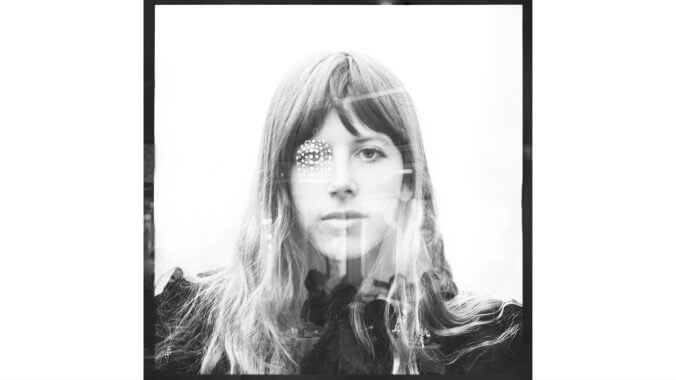Lael Neale Makes Herself at Home on Star Eaters Delight

Lael Neale’s music resides on the blurry fringes of indie pop, and that’s right where she likes it. Sure, she looks back fondly on her time spent immersed in LA’s artistic community—she told Aquarium Drunkard that, since returning to her native Virginia, she misses “being in a community of people doing the same things as me”—but her individualistic way of working and propensity for lo-fi experimentation eludes both categorization and the limelight, especially through the strict adherence to anachronistic recording techniques that defined her 2021 album Acquainted with Night—which was recorded entirely on cassette using a Suzuki Omnichord that Neale was gifted by a friend. Amid the sensory overload of L.A. living, she found sanctum in the retro synthesizer and how its celestial drones and music box-like tones carved out the space and tranquility she longed for.
Later in that Aquarium Drunkard interview, Neale elaborated on life since moving back to her family’s farm: “I walk every day and don’t see anybody and don’t hear anybody and it’s truly isolated and beautiful. I have so much freedom. I have time and it feels very abundant.” This abundance engenders Star Eaters Delight, an album that is more spread out, that is free to test new waters now that her priorities have shifted. On “I Am The River,” the lively lead single and lucid mission statement from her new record, Neale is effusive about her newfound space: “I pledge allegiance to tree and meadow/ I have no need to conquer or keep them.” It’s a light allusion to our obsession with ownership, but she doesn’t get too in the weeds here, instead taking her allegiance to nature even further with the line, “We are together/ I am the river,” as the Omnichord’s bright drone smiles in approval. Neale’s sense of clarity and joy manifests in the uncharacteristically upbeat tempo, the cheerful vocal hook and the rollicking guitar line—the sound of returning to nature.
With this additional space comes additional instruments: Mellotron, guitar, organ, piano, drum machine, and percussion join the talismanic Omnichord; and, apparently, higher fidelity production, too, as the comforting hiss that lay like a fuzzy rug beneath Acquainted with Night is moderated. “In Verona” is emblematic of this break from business as usual. Built on three parallel piano chords, the song is shrouded in reverb, echoing the consecrated, conflict-free space referred to in the lyrics. “There is beauty/ There are no sides/ In Verona,” Neale incants, as synthetic strings undulate like angels floating high above church steeples. A drum pad reminiscent of Massive Attack’s “Teardrop” ticks away pensively, as though counting down to an inauspicious end. There’s a tension here that she hasn’t shown before. It’s compounded by the biblical-inspired lyrics and epic, eight-minute runtime, all of which exemplify her increased confidence as a songwriter.
-

-

-

-

-

-

-

-

-

-

-

-

-

-

-

-

-

-

-

-

-

-

-

-

-

-

-

-

-

-

-

-

-

-

-

-

-

-

-

-








































